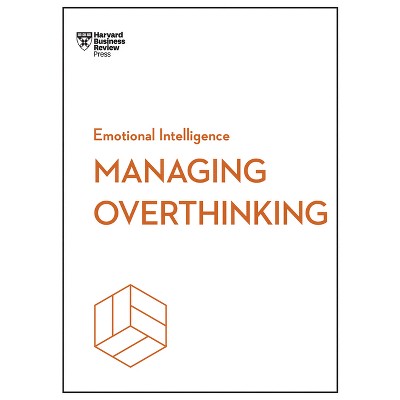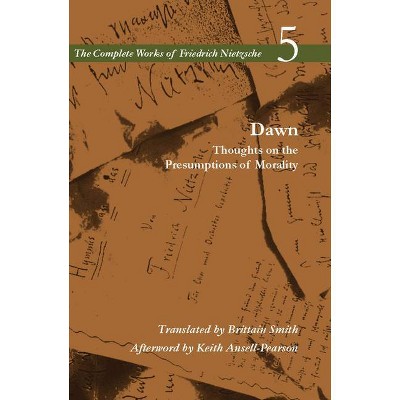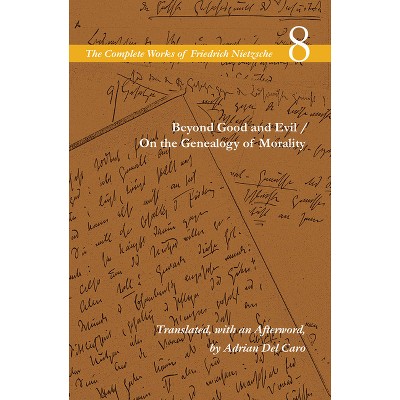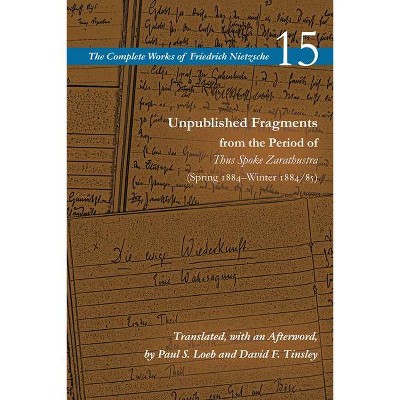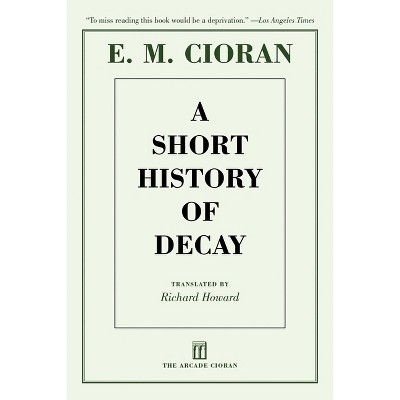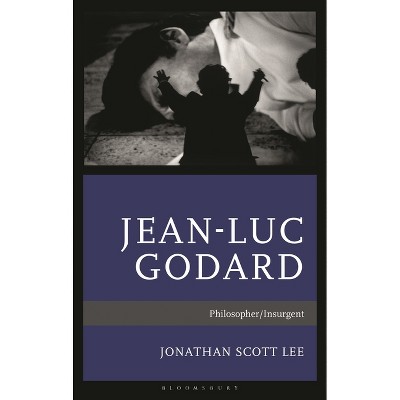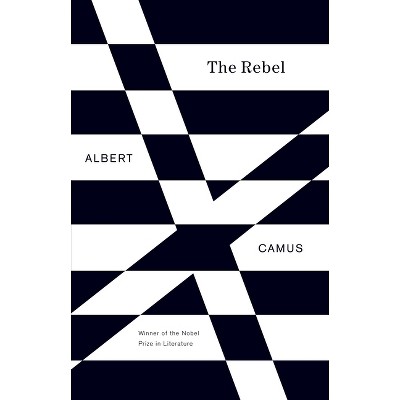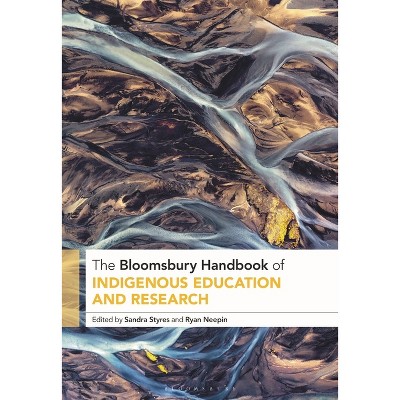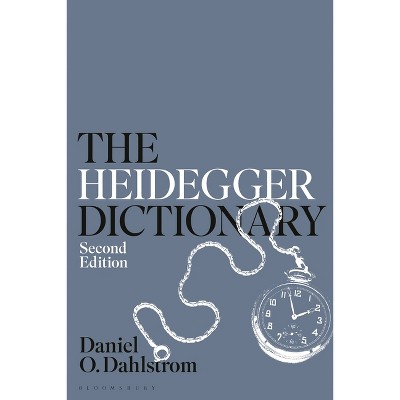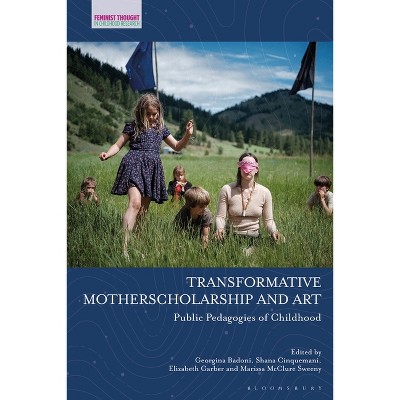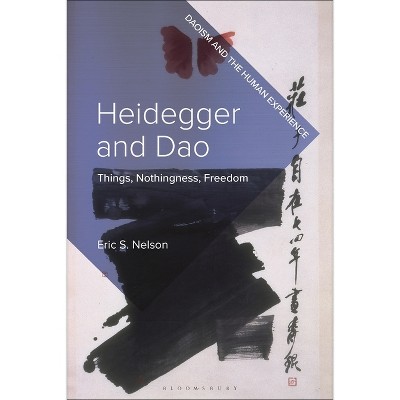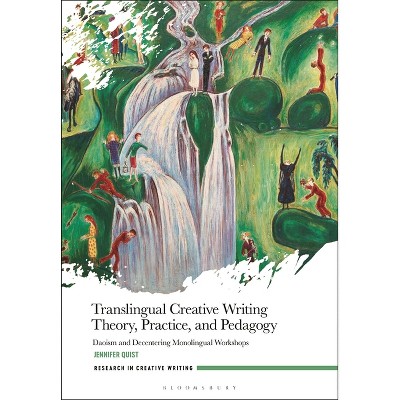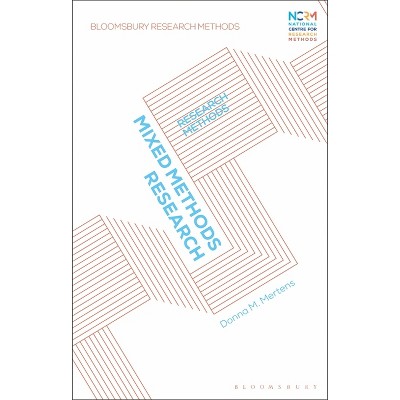Sponsored

The Mystery of Being - (New Heidegger Research) by Erik Kuravsky (Hardcover)
$130.99
In Stock
Eligible for registries and wish lists
Sponsored
About this item
Highlights
- This book showcases the contributions of esteemed scholars in Heideggerian studies, delving into the inquiry of the mystical essence inherent in Heidegger's thought.Rather than confining "mystery" to the conventional realm of mysticism, separate from philosophy, this volume's original research investigates how the mystery of being is integral to philosophy itself, shaping its performative and transformative nature.
- About the Author: Erik Kuravsky is a researcher in the Faculty of Philosophy at the University of Vienna, Austria.
- 320 Pages
- Philosophy, Individual Philosophers
- Series Name: New Heidegger Research
Description
About the Book
This book showcases the contributions of esteemed scholars in Heideggerian studies, delving into the inquiry of the mystical essence inherent in Heidegger's thought.Book Synopsis
This book showcases the contributions of esteemed scholars in Heideggerian studies, delving into the inquiry of the mystical essence inherent in Heidegger's thought.Rather than confining "mystery" to the conventional realm of mysticism, separate from philosophy, this volume's original research investigates how the mystery of being is integral to philosophy itself, shaping its performative and transformative nature. The book's central inquiry asks whether this mystical element is essential to Heidegger's thought and how it relates to traditional notions of mysticism. At its core, however, it questions the very essence of philosophy-its transformative potential-engaging with numerous themes in Heidegger's work while remaining attuned to the centrality and significance of the mystery of being.
Review Quotes
The Mystery of Being: Reconsidering the Mystical Element in Heidegger's Thought is a collection of thoughtful and provocative essays that tackle an important dimension of Heidegger's path. Many scholars have previously addressed the mystical dimension in Heidegger's thought but the topic is discussed from new perspectives in this volume and a convincing case is made to reexamine Heidegger under the taxonomy of philosophical mysticism. At the heart of Heidegger's meditational-as opposed to computational-thinking, or what he called "inceptual thinking," is the notion of mystery understood as the revealing concealment by which the concealed is simultaneously hidden and manifest. The mystical element of Heidegger's poiesis undergirds his claim that the essential being of language, which originates in the silence of speaking the unspeakable, safeguarded especially by the poet, may be elicited from the assertion that saying is showing, but what is shown in that showing is the unshowable, for every unconcealment of truth is inescapably a concealment of untruth. The truth of beyng is beyond language but it is not possible for linguistic beings to leap over language to lay bare beyng divested of linguistic attire. The chapters of this book adeptly elucidate Heidegger's indebtedness to the mystical tradition in shaping his idea of thinking as a transformative event. Particularly relevant is his commitment to the hermeneutical principle of letting the veil appear as what veils. In consonance with mystics in various traditions, Heidegger grasped that lifting the veil, ostensibly to see the face laid bare, amounts to discerning that there is no way to see the face but through the veil of the face. The Mystery of Being is a welcome contribution that will benefit students of Heidegger, mysticism, and the interface of philosophy and religion.
About the Author
Erik Kuravsky is a researcher in the Faculty of Philosophy at the University of Vienna, Austria. He is the author of Transcendence in Heidegger's Early Thought: Toward Being as Event (2023). His research explores the potential for self-fulfillment in human life, examining the ethical, epistemic, and existential dimensions of an individual's ontological transformation. Due to its interdisciplinary nature, his work has been published in Research in Phenomenology, Religions, Sophia, Open Theology, Journal of Humanistic Psychology, Gatherings, and Circolo Rivista di Filosofia e Culture, as well as in various books on phenomenology and the intersections of philosophy and mysticism.Dimensions (Overall): 9.0 Inches (H) x 6.0 Inches (W) x .75 Inches (D)
Weight: 1.31 Pounds
Suggested Age: 22 Years and Up
Number of Pages: 320
Genre: Philosophy
Sub-Genre: Individual Philosophers
Series Title: New Heidegger Research
Publisher: Bloomsbury Academic
Format: Hardcover
Author: Erik Kuravsky
Language: English
Street Date: September 18, 2025
TCIN: 1005953503
UPC: 9798881802141
Item Number (DPCI): 247-01-6799
Origin: Made in the USA or Imported
If the item details aren’t accurate or complete, we want to know about it.
Shipping details
Estimated ship dimensions: 0.75 inches length x 6 inches width x 9 inches height
Estimated ship weight: 1.31 pounds
We regret that this item cannot be shipped to PO Boxes.
This item cannot be shipped to the following locations: American Samoa (see also separate entry under AS), Guam (see also separate entry under GU), Northern Mariana Islands, Puerto Rico (see also separate entry under PR), United States Minor Outlying Islands, Virgin Islands, U.S., APO/FPO
Return details
This item can be returned to any Target store or Target.com.
This item must be returned within 90 days of the date it was purchased in store, shipped, delivered by a Shipt shopper, or made ready for pickup.
See the return policy for complete information.
Frequently bought together
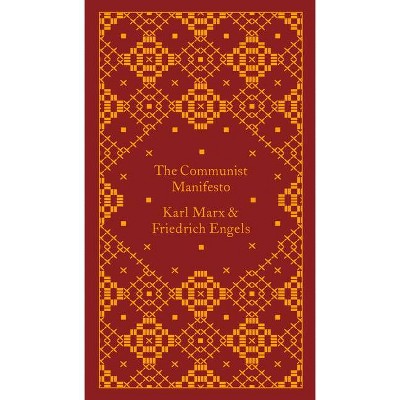
$13.01
MSRP $22.00
Buy 1, get 1 50% off select books
5 out of 5 stars with 1 ratings
